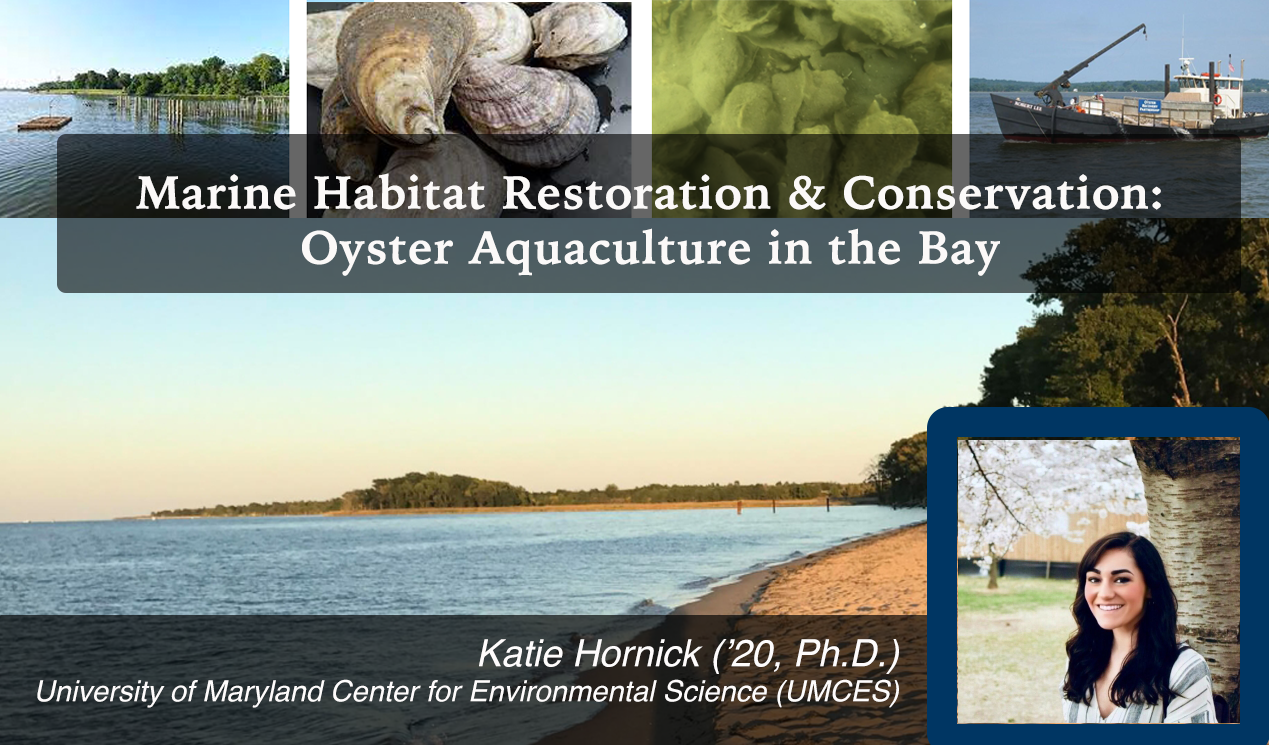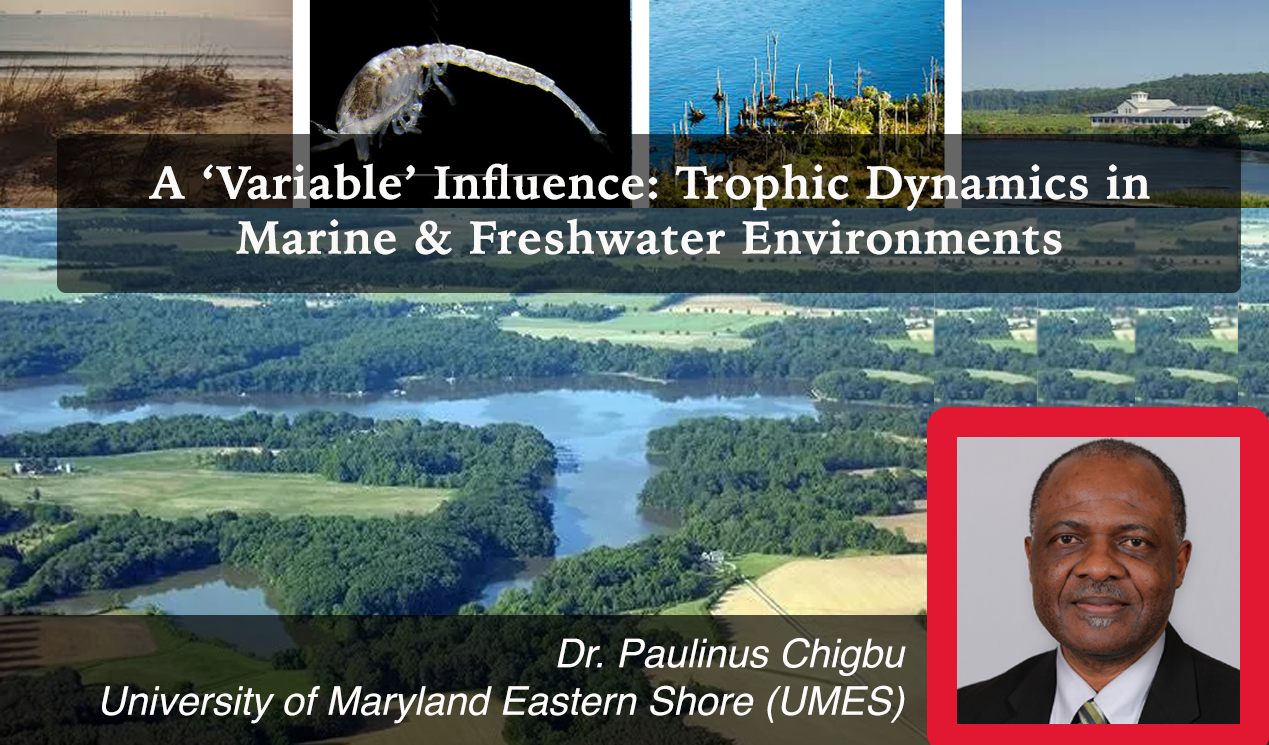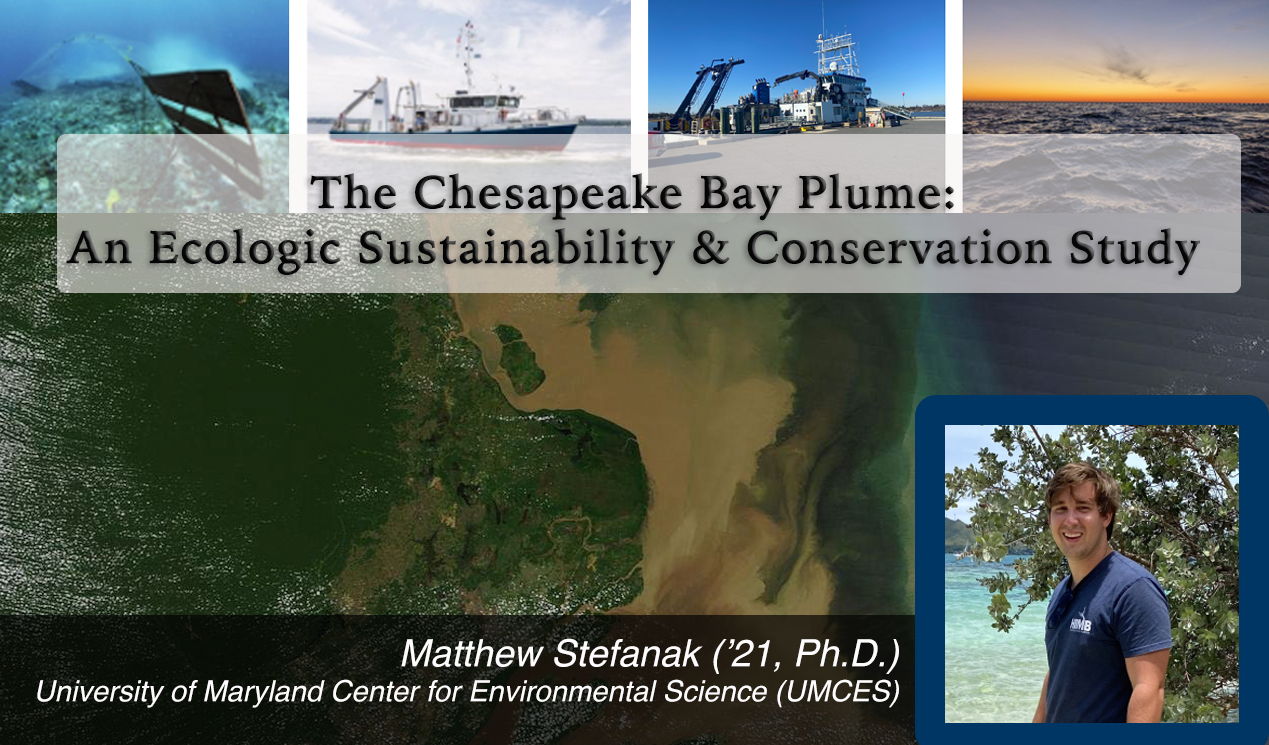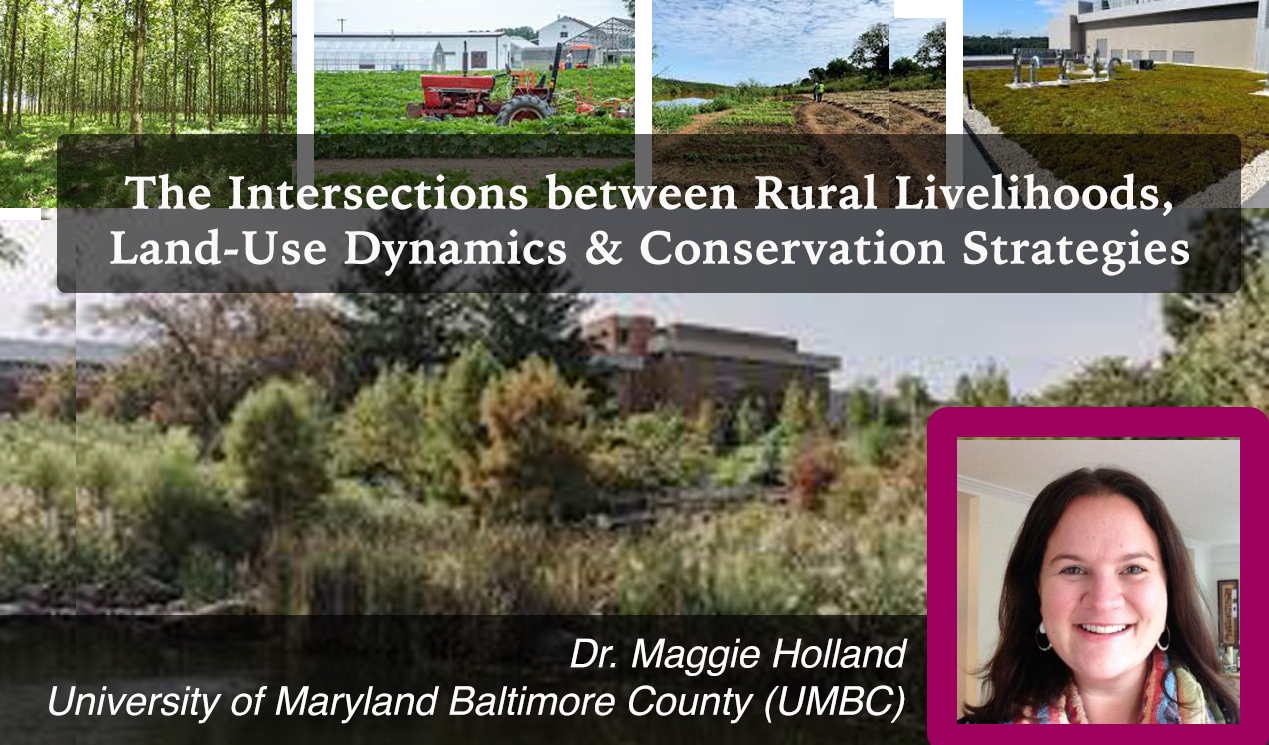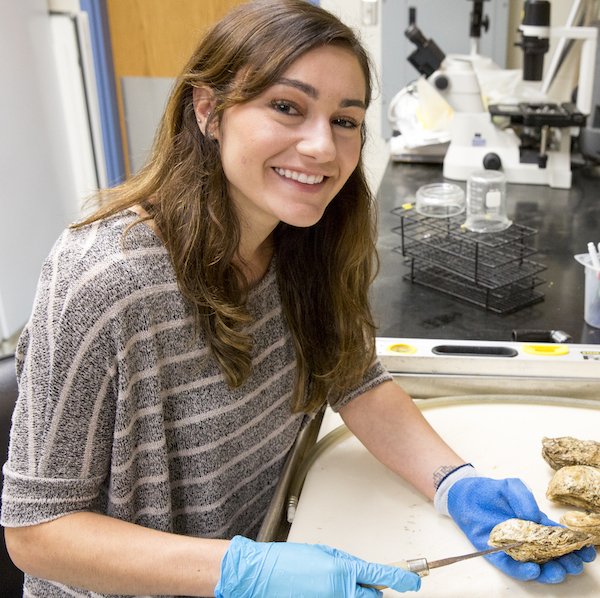ALUMNI CORNER
MEES RESEARCH CENTER
Matthew Stefanak Photo Courtesy: UMCES/CBL
Matthew Stefanak (‘21, ECOL SYS) is a third year MEES Ph.D. student at the University of Maryland Center for Environmental Science. Advised by Dr. Ryan Woodland based at the Chesapeake Biological Laboratory, Matthew’s dissertation research focuses on the effect of alterations to nutrient cycling on food web structure, specifically focusing on the Chesapeake bay plume, a layer of low-salinity water that advances over the more saltier and denser Atlantic Ocean seawater.
Katherine Hornick Photo Courtesy: UMCES/HPL
Katherine Hornick (‘20, ECOL SYS) graduated with a Ph.D.in MEES in Spring 2020 from the University of Maryland Center for Environmental Science. Advised by Dr. Louis Plough based in Horn Point Laboratory, Katie’s dissertation research focused on Harris Creek, the largest oyster sanctuary in the world. Using molecular tools to compare genetic diversity of restored and wild oysters, Katie built a computer model that integrated oyster genetics and biology with real-world restoration scenarios
Marine Habitat Restoration & Conservation:
Oyster Aquaculture in the Bay
katherine Hornick (‘20, Ph.D)
Katherine Hornick (20, Ph.D)
Katherine Hornick (‘20, ECOL SYS) graduated with a Ph.D.in MEES in Spring 2020 from the University of Maryland Center for Environmental Science. Advised by Dr. Louis Plough based in Horn Point Laboratory, Katie’s dissertation research focused on Harris Creek, the largest oyster sanctuary in the world. Using molecular tools to compare genetic diversity of restored and wild oysters, Katie built a computer model that integrated oyster genetics and biology with real-world restoration scenarios. Prior to joining the MEES program, Katie obtained her Bachelor's degree in Natural Sciences from Loyola Marymount University (cum. 3.683 GPA) and spent over a year in Puerto Montt, Chile studying the effect of salmon aquaculture on microbial diversity and community composition of sediments. While at LMU, Katie volunteered to be part of a baseline monitoring project with the Santa Monica Bay Restoration Commission (SMBRC) which aimed at increasing the comprehensive knowledge of the health and functioning of wetlands in an urban environment using the Bella Donna Wetlands near Santa Monica as a test case. The results were published in the Journal of Environmental Monitoring and Assessment (2017). Katie also used those techniques for an independent research project in Chile under the direction of Dr. Alejandro Buschmann from the Universidad de los Lagos in Puerto Montta, Chile. The team examined not only how activities related to salmonid aquaculture affect bacterial biodiversity and community composition of sediments, but also investigated the impact of heavy antibiotic usage in salmon aquaculture which resulted in another publication with Katie as co-author in the Annals of Microbiology (2017). During her career in the MEES Program, Katie first entered as a Master’s student, but later changed her degree objective to a Ph.D. in Spring 2017. Katie garnered numerous awards for nearly every year she was in the program: The Horn Point Laboratory Assistantship (2014), the prestigious CMNS Dean’s Fellowship (2017-2020), and in her final year Katie was awarded both the highly competitive CMNS (College of Mathematical & Natural Sciences) Graduate Scholarship (2020) and the Knauss Fellowship (2020). Katie’s dissertation entitled “Population Genetics of Eastern Oyster Crassostrea virginica Restoration in the Chesapeake Bay” aimed to advance the current understanding of how marine supplementation impacts both neutral and adaptive variation and provide critical information for future oyster restoration efforts. After earning her doctorate in MEES, Katie Hornick worked in the NOAA National Marine Fisheries Service’s Office of Habitat Conservation as a Habitat Restoration Specialist and assisted in developing monitoring and evaluation approaches for Deepwater Horizon restoration. Katie currently is a Bioinformatics Scientist at Axle Informatics, which offers cutting-edge enterprise solutions to research centers and healthcare organizations around the globe – solutions that integrate software technologies with functional research operations. For more information on Katie, please click here.
Dr. Paulinus Chigbu Photo Courtesy: UMES/LMRCSC
A ‘VARIABLE’ INFLUENCE: TROPHIC DYNAMICS IN MARINE & FRESHWATER ENVIRONMENTS
Dr. Paulinus Chigbu (UMES) is Associate Dean for Research, Development and Graduate Education, and Professor of Marine Environmental (Fisheries) Science at the School of Agricultural and Natural Sciences. Dr. Chigbu, a long time MEES faculty member, is also Director of the NOAA LMRCSC and the current Director of the National Science Foundation (NSF) CREST Center for the Integrated Study of Coastal Ecosystem Processes and Dynamics in the Mid-Atlantic Region. A University System of Maryland (USM) Wilson H. Elkins Professor and recipient of the prestigious United States Presidential Award for Excellence in Science, Mathematics and Engineering, Dr. Chigbu’s primary research interests are fisheries and zooplankton ecology, particularly the influence of variations in climatic factors on water quality and biota, and trophic dynamics in marine and freshwater environments. Most recently, Dr. Chigbu, along with his students, are trying to understand the influence of climate variability and human activities on water quality, fishes (for example, summer flounder, bay anchovy), and invertebrates in the coastal bays of Maryland and the coastal ocean of the mid-Atlantic. In a recent paper published in 2021 by the International Journal of Environmental Research and Public Health, Dr. Chigbu, who has and is advising many MEES graduate students, along with a group of researchers which included another MEES faculty member Dr. Ali Ishaque, conducted a study which assessed the detection and activity profiles of contaminants of emerging concern (CECs) with estrogenic or estrogenic-like activity in the Maryland Coastal Bays (MCBs). Their presence has been increasingly detected in aquatic environments and have been an issue of global concern due to their potential negative effects on wildlife and human health. The results showed estrogenic activity in all study sites tested, with proliferation being most concentrated in Sinepuxent Bay close to the Ocean City inlet. For more information on this important study, click here. Another exciting research development was the discovery of a new species of shrimp Carinacuma umesi, discovered in the shallow waters of the Maryland Coastal Bays. This was under the direction of Dr. Andrés G. Morales-Núñez, a research assistant professor in the NSF CREST-CISCEP Center, who made the discovery supported by Dr. Paulinus Chigbu. In the announcement article by UMES, Dr. Chigbu notes that “this is a significant contribution to knowledge of the biodiversity and zoogeography of crustaceans, particularly cumaceans, and underscores the need for additional studies on the taxonomy and ecology of benthic macroinvertebrates of the coastal waters of the northeastern United States”. This study, which processed data over a two year period, uncovered a new shrimp species which closely resembles Spilocuma watling, which is native to the northeast Gulf of Mexico, but differs in that the males lack pleopods (swimming legs). Samples from the specimens has been deposited in the Smithsonian Institution’s National Museum of Natural History in Washington, D.C. For more information on this work, please click here.
Back to Top
MEES RESEARCH CENTER
The Chesapeake Bay PlumE: AN ECOLOGICAL SUSTAINABILITY & CONSERVATION STUDY
Matthew Stefanak Photo Courtesy: UMCES/CBL
Matthew Stefanak (‘21, ECOL SYS) is a third year MEES Ph.D. student at the University of Maryland Center for Environmental Science. Advised by Dr. Ryan Woodland based at the Chesapeake Biological Laboratory, Matthew’s dissertation research focuses on the effect of alterations to nutrient cycling on food web structure, specifically focusing on the Chesapeake bay plume, a layer of low-salinity water that advances over the more saltier and denser Atlantic Ocean seawater. The Chesapeake Bay is the largest estuary in the US and the third largest in the world: Matthew’s research aims to explore if and how the Chesapeake Bay plume drives benthic community structure and nearshore food web dynamics. Prior to joining the MEES Graduate program, Matthew had already garnered a wealth of research and academic achievements; having already co-authored or authored 5 publications, and presented four posters, making the Dean’s List each semester and graduating magna cum laude (with honors) from Middlebury College in Spring 2019 with a joint B.A. degree in Biology & Environmental Studies (cum GPA 3.75). Matthew was also selected to participate in numerous prestigious research internships which include: the University of Maryland Baltimore hospital in the NICU (Neonatal Intensive Care Unit) under the direction of Dr. Dina El-Metwally where the outcomes of these studies, which took several years to complete, showed significant exposure of infants to several neurotoxicants at concerning levels, and ultimately resulted in two publications in Pediatric Research, one with Matt as a first author, and Matt presented these findings at the Research Society on Alcoholism’s Conference in Denver (2017). Matt also had the opportunity during the fall semester of his senior year to take courses at the Woods Hole Oceanographic Institute in Fall 2018 under the direction of Associate Scientist Joel Llopiz, working in the Larval Ecology lab. This fueled Matt’s desire to further explore not only the scope and importance of reef and other benthic systems as biodiversity hotspots and shoreline regulators, but also as crucial components to coastal communities economically and culturally. Matt’s project, which attempted to delineate the relative effects of coastal forces (e.g. current intensity/direction, weather events) and biophysical determinants (e.g. autonomous larval selection of preferred reef sites) on larval recruitment, was continued at Middlebury College in Spring 2019 and was presented at the Middlebury College Symposium. Matt also had the opportunity to join the Coral Reef Ecology Laboratory at the University of Hawaii at Manoa as a volunteer intern under the direction of Dr. Ku‘ulei Rodgers, who notes that Matt’s substantial contributions led to the following published report that is vital to the State of Hawai‘i in determining the efficacy of the only community managed fishing reserve in Hawai‘i. Dr. Rodgers also notes that the results of this study will help guide the establishment of other future reserves. Matt joined the MEES Graduate Program in Fall 2021 as a doctoral student and was awarded the prestigious and highly competitive University Flagship Fellowship (2021), a multi-year recruitment enhancement award to outstanding newly admitted doctoral students and most recently earned the distinguished Debbie Morrin-Nordlund Memorial Travel Award (2023). This western Pennsylvania farm native aims to further discussion on successful long term system based solutions that not only benefit the environment, but also the people and communities that call it home. For more on Matthew, please click here.
Back to Top
faculty focus: The intersections between rural livelihoods, land-use dynamics & conservation stratEGIES
Dr. Maggie Holland Photo Courtesy: UMBC
Dr. Maggie Holland is an Associate Professor and the Interim Chair of the Department of Geography & Environmental Systems at the College of Arts, Humanities, and Social Sciences at the University of Maryland, Baltimore County. A recently appointed MEES Graduate Faculty Ecological Systems Foundation member, Dr. Holland’s research interest rest, at a most fundamental level, on the intersections between rural livelihoods, land use dynamics, governance, and conservation strategies. Dr. Holland most recently was awarded the prestigious 2022 UMBC Marilyn E. Demorest Faculty Advancement Award, with her colleagues describing her as a kind & generous mentor, who supports their growth as faculty and as community members. In addition to mentoring MEES graduate students, other UMBC graduate students, and teaching MEES courses, Dr. Holland has led a shared learning session for faculty, staff & students and is working to create a cross institutional mentoring network for faculty and under-represented groups who teach and conduct research on the environment and climate change. Dr. Holland’s most recent research activities range from: community benefit-sharing from wildlife conservation in Mozambican protected areas to the influence of conservation management on poverty in Central America and the challenges of trans-boundary environmental governance using the Mesoamerican Biological Corridor as a test case. Dr. Holland has collaborated extensively in research with colleagues in Mozambique, economists, geographers, conservation biologists as well as conservation and development practitioners in an effort to develop research that not only contributes to academic discourse, but solutions that are also relevant and practical, informing a specific policy or management dialogue. Dr.Holland recently, in conjunction with the UMBC Center for Social Science Scholarship, hosted a panel with applied GIS students on social science & geospatial data work in Baltimore City entitled: “The Landscape of Geospatial Data & Social Sciences in Baltimore City”.
